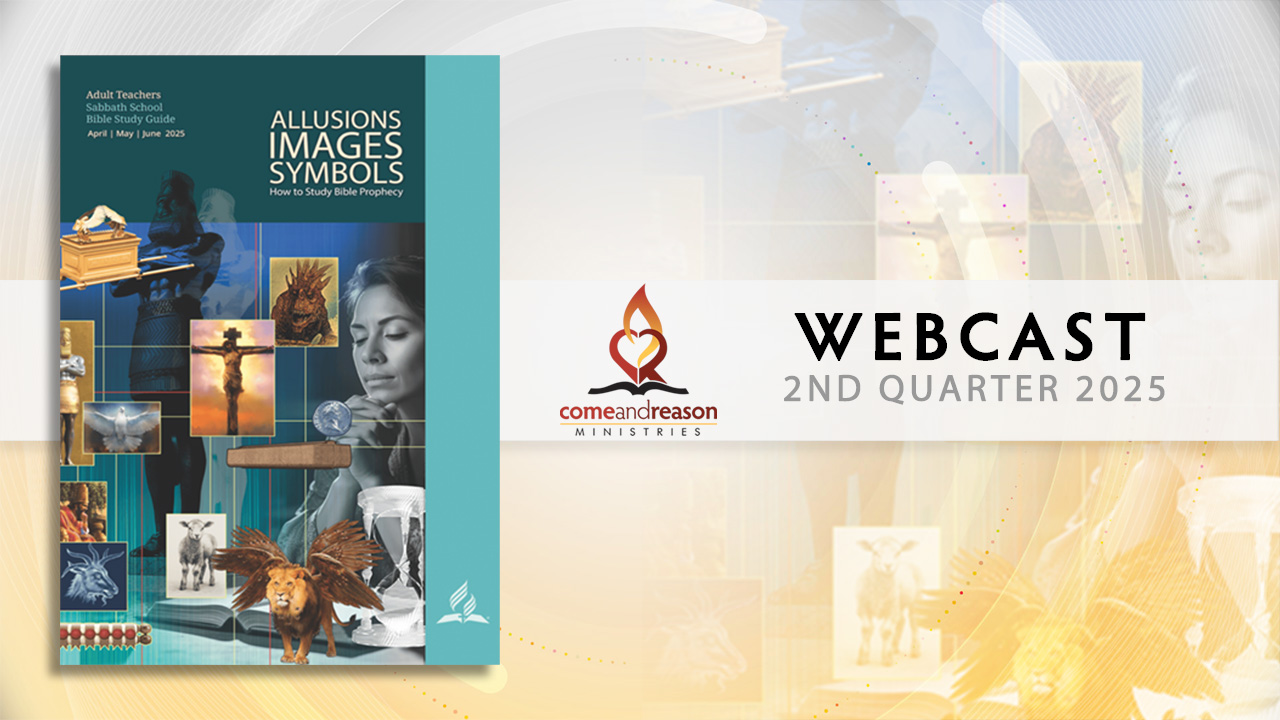The apostle Paul wrote,
May God himself, the God of peace, sanctify you through and through. May your whole spirit, soul and body be kept blameless at the coming of our Lord Jesus Christ (1 Thessalonians 5:23 NIV84).
Is it just a coincidence that Paul lists these three domains—spirit, soul, and body—in the order he does, or is it inspired? Does it reveal that healing starts with the spirit, moves to the soul, and ends with the body?
The Greek word translated as “body” is soma and refers to the physical structure of our being, which is the easiest for us to identify and differentiate from soul and spirit. The Bible is filled with many instructions for the health of the body—guidance on hygiene, diet, exercise, and rest. If we use the metaphor of a computer, the soma would correspond to the hardware, the physical components of the machine that one can touch.
The Greek word for “soul” is psyche, from which we get words like “psychiatry” and “psychology”, and refers to our individuality, character, unique personhood; the psyche would correspond to the software on a computer, encompassing all the things we learn, such as our language, and what we hold to be true, our values, morals, and beliefs—thus, it is our mind.
The Greek word for “spirit” is pneuma and is translated into a variety of English words, such as wind, spirit, ghost, and breath—as in the “breath of life.” The spirit, breath of life, corresponds to the energy of our being and, first and foremost, is the life-giving energy from God.
The LORD God formed the man from the dust of the ground [body] and breathed into his nostrils the breath of life [spirit], and the man became a living being (Genesis 2:7 NIV84).
When a person dies, God’s creation reverses this process; the body goes back to dirt and the breath of life, the life energy from God, the “spirit,” returns to God:
The dust returns to the ground it came from, and the spirit returns to God who gave it (Ecclesiastes 12:7 NIV84)
The word “spirit” here is used to indicate the breath of life, the life energy. But the word has additional meanings that Paul applies when writing to the Corinthians:
Even though I am not physically present, I am with you in spirit … when you are assembled in the name of our Lord Jesus and I am with you in spirit, and the power of our Lord Jesus is present (1 Corinthians 5:3, 4 NIV84).
Our spirit, as Paul uses the term above, refers to our affections, attitudes of the heart, and true motives of action, and it is where God works via His Spirit to cause us to be dissatisfied with sin, to give us a longing for something more, to create a conviction, an uneasy restlessness, when we are departing from Him and His path for our lives. The spirit is our innermost heart’s desires, preferences, and alignments—what we resonate with and also the attitudinal atmosphere we both create and prefer. Do we have a spirit of love or hate, of kindness or cruelty, of humility or arrogance, of gentleness or brutality, of fear or courage?
Think about your closest loved one, perhaps a child or spouse, going on a dangerous trip, perhaps to a war zone, and, with tears, you say to them, “I will be with you in spirit.” What do you mean? Are you saying you will go along with them bodily, in person? No, you will not be with them physically when you are with them in spirit. Are you saying that you are going to have an out-of-body experience and float alongside them in some ghost-like apparition? Of course not.
You are saying that you will be with them in heart, sympathy, compassion, attitude, desiring for their good, sharing in their struggles and hurts, rejoicing in their triumphs, celebrating their success, keeping their health, welfare, and good foremost in your affections and prayers. You have your heart’s energies oriented toward them for their good. To be with your child in spirit is to be in harmony with them in your inmost being, resonating and connecting with them along unseen energy bonds of the quantum universe that God has created. It is the alignment of one’s heart, affection, goodwill, and intentions for another’s health and happiness.
The way God created human beings, after Adam received the “spirit,” the breath of life, from his Creator, he had the ability to impact and shape, change, alter, and influence the tenor, vibration, character, condition, quality, and purity of that energy. Just as we can contaminate pure water and make it foul, so also we can contaminate the pure energy we receive from God. In fact, through Adam’s sin, he contaminated the pure motivation and animating energy of love with fear and selfishness, and we are all born with a life, a spirit, that we received from Adam that is already contaminated with fear and selfishness that need spiritual cleansing (Psalm 51:5). This is what Paul is telling us when he informs us that our entire being needs sanctifying—our motivational energies (spirits, pneuma) need to be sanctified.
 
How Salvation Actually Works
But what does this mean in practical terms? It means that salvation requires cleansing of the spirit from the contamination of sin (fear and selfishness). Salvation—cleansing, the removal of sin—starts with our spirits (pneuma), moves into our souls/minds (psyche), and ends with our bodies (soma) at the Second Coming.
In order to intelligently cooperate most effectively with God for the cleansing of our spirits, we must understand what our spirit is. The spirit is the part of our being that connects with the Spirit of God and is the means whereby God inspires, energizes, encourages, motivates, and convicts us. Our spirit is where the healing energy of God interacts with our energy, (inmost desires and motivations) to influence us. The Spirit is the vitalizing power of God that brings life.
Jesus said, “The Spirit gives life; the flesh counts for nothing” (John 6:63 NIV84).
The spirit is the wellspring, the energy source, the life-giving power that fuels our being—it is the breath of life given to us by God, but the Holy Spirit is the sustaining, healing, purifying, invigorating, inspiring, transforming, renewing, regenerating power of God that cleanses our spirits, enlightens our minds, inspires our songs, motivates our hearts, cleanses our consciences, ennobles our minds, and seals us to God’s kingdom of love.
And you also were included in Christ when you heard the word of truth, the gospel of your salvation. Having believed, you were marked in him with a seal, the promised Holy Spirit, who is a deposit guaranteeing our inheritance until the redemption of those who are God’s possession—to the praise of his glory (Ephesians 1:13, 14 NIV84).
It is the Holy Spirit that brings us the new healthy desires, motives, and presence of Jesus. It is via the Holy Spirit that we become partakers of the divine nature (2 Peter 1:4). But when the Spirit moves upon our hearts, our inmost beings, we must choose to say “yes” to the leading of the Spirit—to forgive, to reject the old carnal ways of dishonesty, selfishness, evil surmising, gossiping, jealousy, revenge—and, instead, align our hearts with the “Spirit,” the attitude of Jesus Himself—to love our enemies and bless those who persecute us.
Jesus said to His disciples, when they asked if they should call fire down on the Samaritans,
“You do not know what manner of spirit you are of. For the Son of Man did not come to destroy men’s lives but to save them” (Luke 9:55-56 NKJV, emphasis mine).
The disciples were fostering a spirit of God’s enemy, of revenge rather than a spirit of love and grace. They needed spiritual cleansing!
While the Holy Spirit brings us the truth, love, and conviction, it is up to us to accept or reject the cleansing energies of God’s Spirit; if, instead of having our spirits cleansed, we cling to resentment, bitterness, unforgiveness, unkindness, jealously, a desire for revenge etc., we grieve the Spirit (Ephesians 4:30).
But as we respond to the movements of the Holy Spirit upon our spirit, we move from merely being kept physically alive and sought after by the Holy Spirit, like the shepherd seeking the lost sheep, to actual thriving! When we choose to stay connected to God in a living faith/trust relationship, we experience the vitalizing power of God purifying our spirits. When we surrender our hearts and minds to Jesus in faith, it is then that we receive the indwelling presence of the Holy Spirit, who renews our spirits, transforms our motives, desires, hearts, and attitudes, and purifies our inmost being with love, joy, hope, and truth by taking what Jesus achieved and reproducing His spirit in us. As Paul wrote, “I have been crucified with Christ and I no longer live, but Christ lives in me” (Galatians 2:20 NIV84).
But if we do not remain in a living faith/trust relationship with God—if, instead, we go our own way and do our own thing after our conversion—that would be like tying a plastic bag over our heads and cutting ourselves off from life-giving refreshing air. If we cut ourselves off from the Holy Spirit, we only breathe back into our souls the spiritual waste, fears, uncertainties, guilt, shame, doubts, mistakes, misunderstandings, shortcomings, denials, rationalizations, heartaches, hurts, disappointments, and wrongs. Our spirits will then slowly lose the heavenly atmosphere of joy, peace, patience, love, and hope. Just like the air inside the plastic bag becomes stale, so our spirits become stale, stagnant—and just like what happens when we breathe in the stale air, our spirits eventually lose energy and drive, and we become discouraged and are tempted to give up.
But when we retain our life-giving faith connection with God, our daily communion with Him, then we daily breathe in God’s Spirit and are filled with the presence of God, His life, His energy, His love, His affection, kindness, goodness, grace, truth, and power. 
Our spirit is our life energy. God’s Spirit is the full energy of the divine third Person of the Godhead who unites with us with the full power of the Godhead, bringing us the “Spirit” of the Lord—the new attitude of love rather than hate. As Paul wrote to Timothy,
For God has not given us a spirit of fear, but of power and of love and of a sound mind (2 Timothy 1:7 NKJV).
I encourage you to be purposeful in your daily routines, to start every day in personal communion with God, meditating upon His Word, His creation, His providences, and talking with Him. Invite the Holy Spirit into your heart to cleanse, renew, refresh, and invigorate your spirit so that you will experience “the fruit of the Spirit [which] is love, joy, peace, patience, kindness, goodness, faithfulness, gentleness and self-control” (Galatians 5:22, 23 NIV84).
And as Paul wrote to the Philippians, I close with this desire for you:
If you have any encouragement from being united with Christ, if any comfort from his love, if any fellowship with the Spirit, if any tenderness and compassion, then make my joy complete by being like-minded, having the same love, being one in spirit and purpose (Philippians 2:1, 2 NIV84).
 









 using your credit or debit card (no PayPal account needed, unless you want to set up a monthly, recurring payment).
using your credit or debit card (no PayPal account needed, unless you want to set up a monthly, recurring payment). instead?
instead?